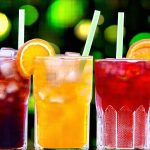Maintaining urinary stability – the ability to control when and where you urinate – is crucial for quality of life. It’s often something we take for granted until disruptions occur. Many factors contribute to bladder function, from neurological health and pelvic floor strength to dietary choices. While a comprehensive approach addressing all these areas is ideal, focusing on beverage selection represents a readily accessible and impactful starting point for improving or maintaining urinary control. What we drink significantly influences the volume and composition of urine, directly impacting how well our bladders function and how comfortable we feel throughout the day. This article will explore the relationship between beverages and urinary stability, offering insights into choices that can support healthy bladder habits and minimize potential issues.
Urinary instability isn’t always a sign of underlying disease; it can be triggered or exacerbated by simple lifestyle factors, including beverage consumption. Understanding how different drinks affect your bladder is empowering. It allows you to proactively manage symptoms, reduce accidents, and regain confidence. The goal isn’t necessarily complete avoidance of all ‘problematic’ beverages (though moderation is always key), but rather informed choices that prioritize bladder health without drastically restricting enjoyment. This article will focus on providing practical information and guidance for making those choices effectively – empowering you to take control of your urinary wellbeing.
Understanding the Impact of Beverages
The kidneys are responsible for filtering waste products from the blood, producing urine as a result. The composition of what we drink directly affects this process. Different beverages contain varying levels of water, caffeine, alcohol, acidity, and artificial sweeteners – all of which can impact bladder function in different ways. Diuretics, substances that increase urine production, are particularly relevant to urinary stability. While adequate hydration is essential for overall health, excessive fluid intake, or consumption of highly diuretic beverages, can overwhelm the bladder, leading to urgency and frequency. Conversely, insufficient fluid intake can concentrate urine, potentially irritating the bladder lining. If you’re looking for ways to optimize your fluid intake generally, consider exploring hydration habits for optimal urinary balance.
The bladder itself is a complex organ with sensitive nerve endings. Certain ingredients in beverages – like caffeine and alcohol – can irritate these nerves, causing involuntary contractions and the sensation of needing to urinate even when the bladder isn’t full. Acidic drinks can also contribute to irritation, particularly for individuals with pre-existing bladder sensitivities. It’s important to remember that everyone reacts differently; what triggers symptoms in one person may not affect another. Identifying your personal triggers through mindful observation and a bit of experimentation is key to developing a beverage plan tailored to your needs.
Ultimately, choosing beverages for urinary stability isn’t about eliminating all ‘bad’ drinks. It’s about understanding their potential effects and making informed decisions that balance hydration with bladder health. Moderation, awareness, and personalization are the cornerstones of a successful strategy. For those seeking to incorporate more holistic strategies, mind-body strategies for urinary coordination can be incredibly beneficial.
Decoding Common Beverages
Let’s look at some frequently consumed beverages and their typical impact on urinary stability:
- Water: The gold standard for hydration. It’s generally well-tolerated by most people with bladder issues and doesn’t contain irritating substances. Aim to drink enough water throughout the day, but avoid large gulps which can quickly fill the bladder. Spreading your fluid intake evenly is often more beneficial than consuming a lot at once.
- Coffee & Tea: These are common diuretics due to their caffeine content. Caffeine stimulates the kidneys, increasing urine production and potentially irritating the bladder. The effect varies based on individual sensitivity and the strength of the brew. Decaffeinated options can be considered, but even these may contain trace amounts of caffeine or other compounds that could affect some individuals.
- Alcohol: Similar to caffeine, alcohol is a diuretic, increasing urine production and disrupting signals between the brain and bladder. It also interferes with hormone regulation related to fluid balance. Different types of alcoholic beverages can have varying effects; beer tends to be more diuretic than wine due to its higher water content initially, but the overall impact depends on consumption amount.
- Carbonated Drinks: The carbonation itself can irritate the bladder in some individuals, and many sodas contain caffeine or artificial sweeteners that further exacerbate issues. Acidic citrus-flavored beverages are also potentially problematic.
- Fruit Juice & Smoothies: While seemingly healthy, certain fruit juices (especially citrus) can be acidic and irritating to the bladder. Smoothies may contain ingredients that contribute to urinary frequency or urgency.
The Role of Artificial Sweeteners
Artificial sweeteners have become ubiquitous in diet drinks and sugar-free products. While they offer a calorie-free alternative to sugar, their impact on bladder health is increasingly recognized. Some artificial sweeteners, such as aspartame, saccharin, and sucralose, can cause bladder irritation and exacerbate urinary symptoms in susceptible individuals. The exact mechanism isn’t fully understood, but it’s believed to involve direct irritation of the bladder lining or changes in pelvic floor muscle function.
It’s important to note that not everyone reacts negatively to artificial sweeteners. However, if you experience urinary issues, experimenting with eliminating them from your diet for a period can help determine if they are contributing factors. Look for beverages sweetened naturally (in moderation) or consider unflavored options. Reading ingredient labels carefully is crucial to identify the presence of these potentially irritating substances. You may also find best low-sugar drinks for bladder stability a helpful resource.
Strategies for Bladder-Friendly Hydration
Managing beverage intake effectively involves more than just choosing the “right” drinks; it’s about implementing mindful hydration habits. Here are some strategies:
- Track Your Intake: Keep a fluid diary for a few days, noting what you drink and any associated urinary symptoms. This can help identify personal triggers.
- Spread Out Fluids: Instead of drinking large amounts at once, sip fluids consistently throughout the day. Aim for small, regular intakes rather than infrequent, large gulps.
- Time Your Intake: Avoid consuming significant amounts of fluid close to bedtime to minimize nighttime awakenings. Similarly, limit intake before long journeys or situations where access to a restroom is limited.
- Choose Wisely: Prioritize water as your primary beverage. When choosing other drinks, opt for bladder-friendly options like herbal teas (avoiding those with diuretic herbs), diluted fruit juices, and decaffeinated beverages in moderation. Exploring herbal infusions for urinary calm can offer gentle support.
- Listen to Your Body: Pay attention to how different beverages make you feel. What works for one person may not work for another.
Ultimately, a proactive approach to beverage selection can significantly improve urinary stability and quality of life. By understanding the impact of different drinks and implementing mindful hydration habits, you can take control of your bladder health and regain confidence in everyday activities. Remember that consistency and personalization are key – finding what works best for you is the most important step towards achieving long-term wellbeing. For those looking to incorporate dietary changes alongside these strategies, simple diet tweaks for urinary pain prevention can prove valuable.





















